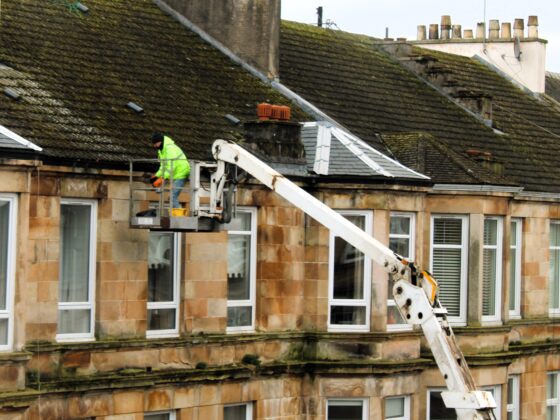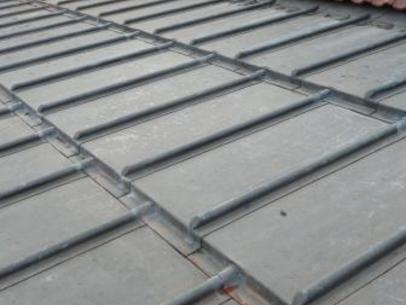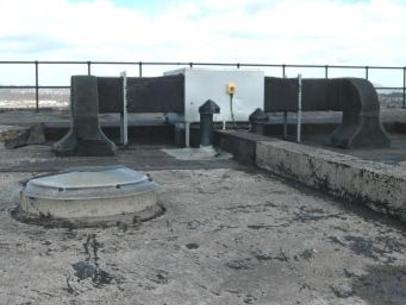There is a lot that can be done to make it easier to cope with work on-site and get the best from your chosen firm. If you have employed an architect or surveyor to manage your repair, as you should with any major repair, or if you have a property manager, they will carry out many of these tasks for you.
Pre-start checks
For individual owners:
- what cover will your own insurance policy give you – does the company need to be notified?
- are workers coming into the house – if so, lock valuables away
- do they have any gas appliances – these may need to be blocked off or disconnected while the work takes place
- do you need to make arrangements for any owner or family member who suffers from a health condition that could be made worse by noise, fumes, etc.
- old ceilings can be vulnerable to major building work – take photographs in advance
- do you need to move any precious plants in the garden?
Check with the builder:
- how will necessary health and safety precautions affect owners?
- if the building will be scaffolded, how secure are accessible windows?
- what access needs to be provided – can one owner hold keys?
- what will your builder do about toilets, electrical supplies, water?
- how and where will materials be stored?
- who will provide dust covers, etc.
- what scope is there for meeting individual owner’s requirements – e.g. paint colours
- recheck the work schedule
A pre-start meeting can be used to clarify all these issues.
On-site management
Appoint a representative, a single point of contact for builders.
Make sure other owners:
- don’t jump in and give the contractor conflicting orders
- know how to communicate with the builder (preferably only via the representative if communal repairs only are involved)
- know what to do if they want individual repairs done at the same time
Making changes
Ideally, don’t make changes. A good quote will have planned for unforeseen additional work.
If you do have to make changes:
- inform other owners as soon as possible
- notify the builder informally, so alternative plans can be thought through
- check timing and cost implications with the builder
- put it in writing
If you are using the SBCC Domestic Works Contract, these points will be covered in the contract.
Stage payments
- agree phasing with the builder
- make stage payments when an agreed amount of work has been completed
- pay on time
- retain a final payment until the work is complete and snags rectified
- never pay upfront – a builder requesting labour payments upfront might be a sign that they are in financial trouble – you could consider funding large material items upfront, but make sure they are bought in your name and are clearly your property (consider using the Trustmark Escrow Service)
If you are using the SBCC Domestic Works Contract, these points will be covered in the contract.
Getting it checked
It is worth paying to get large repair jobs independently checked.
If you have employed a surveyor or architect to commission your repairs, this should be included in their contract (but double check).
You may also employ a clerk of works to monitor work on-site.
It is unlikely that the council will offer any checking of work, but they may do so if you are getting a grant or if you are carrying out compulsory repairs. The council does have a duty to ensure public safety, so if you have concerns on this aspect of a builder’s work, the Building Standards Officers may be able to step in.





